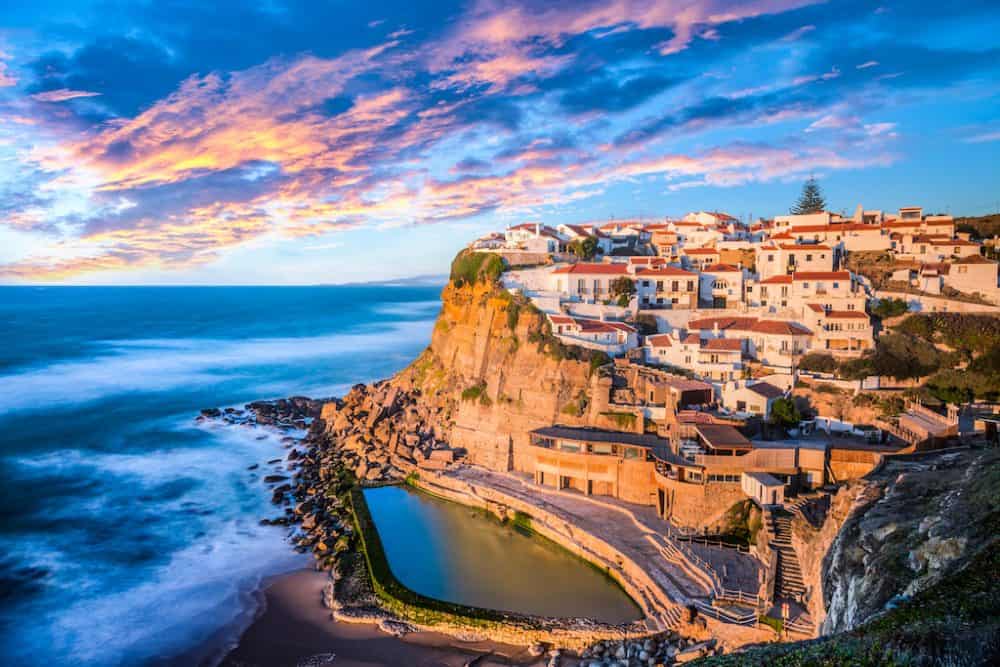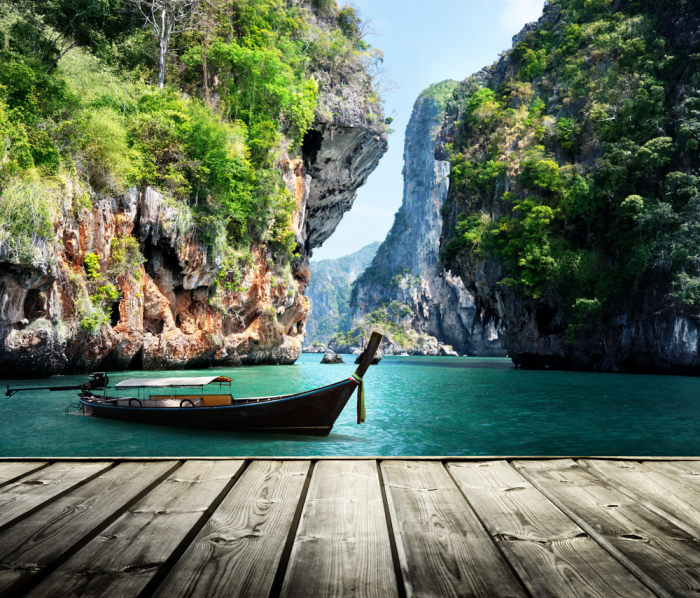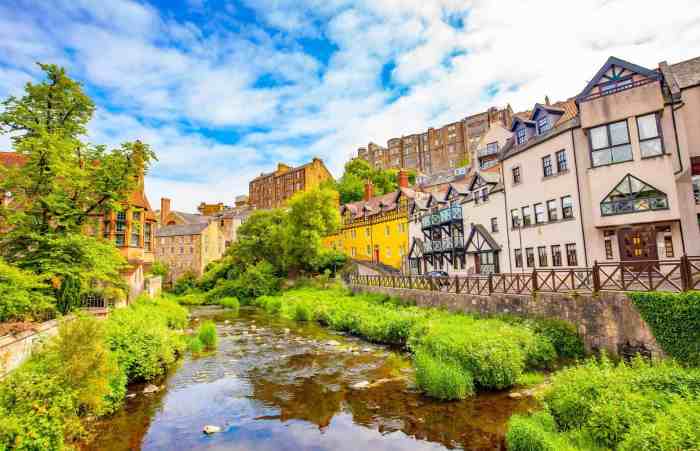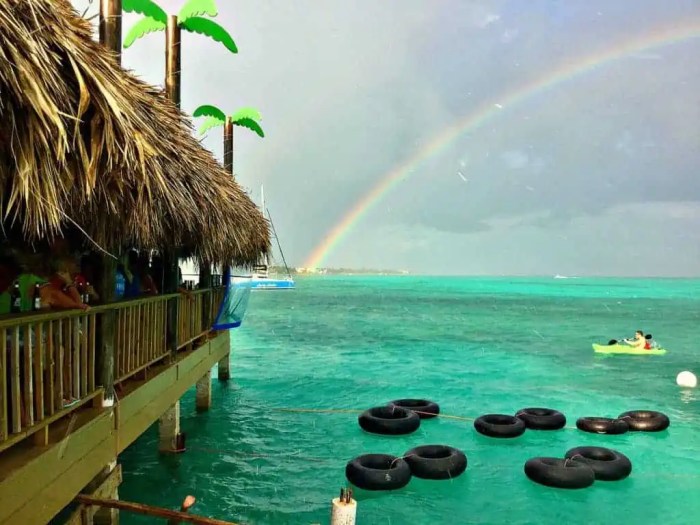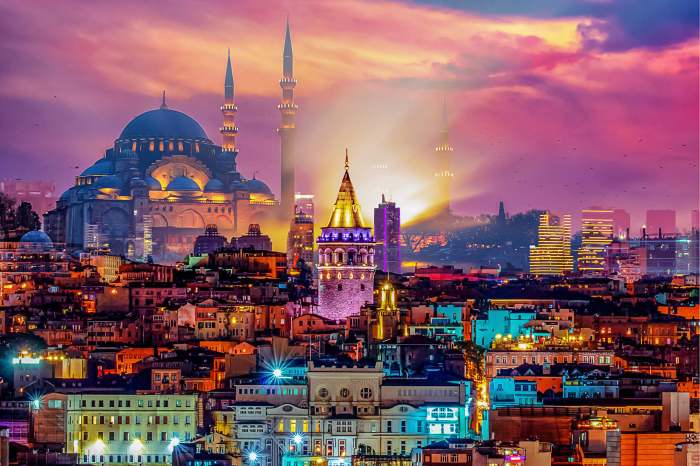Top 25 Places To Visit In Portugal
Top 25 Places To Visit in Portugal – you’re probably picturing sunny beaches and delicious seafood, right? And you’d be totally right! But Portugal’s got way more than just sun and sand. It’s a country packed with history, from ancient Roman ruins to charming medieval towns.
And let’s not forget the natural beauty – soaring mountains, lush forests, and even volcanic islands. This is a place where you can hike through breathtaking landscapes, explore vibrant cities, and soak up the rich culture, all in one trip.
This list covers everything from the iconic Algarve coast and the historic city of Lisbon to hidden gems like the Serra da Estrela mountain range and the Peneda-Gerês National Park. We’ve also included tips on where to stay, how to get around, and even what to eat! So grab your passport, pack your bags, and get ready for an unforgettable adventure in Portugal.
Portugal: A Land of Enchantment
Portugal, a captivating nation nestled on the Iberian Peninsula, boasts a diverse landscape that seamlessly blends rugged coastlines with rolling hills, ancient forests with sun-drenched beaches. Its rich cultural heritage, shaped by centuries of history and influences, has left an indelible mark on its art, architecture, and cuisine.
From the vibrant streets of Lisbon to the serene beauty of the Douro Valley, Portugal beckons travelers with its charm, warmth, and endless opportunities for exploration. As a popular tourist destination, Portugal consistently ranks high on travel lists, drawing in millions of visitors each year who are captivated by its unique blend of history, culture, and natural beauty.
This guide meticulously curates the top 25 places to visit in Portugal, based on a comprehensive assessment of factors like historical significance, cultural impact, natural beauty, and overall visitor experience. Each location is carefully selected to offer a diverse range of experiences, ensuring that travelers can discover the multifaceted beauty of Portugal, from its bustling cities to its tranquil countryside.
Portugal’s Top 25 Places
The selection process involved a thorough evaluation of various factors, including:
- Historical Significance:Places with a rich history and cultural heritage, showcasing significant events or figures in Portugal’s past.
- Cultural Impact:Locations that embody Portugal’s unique culture, traditions, and art forms, offering a glimpse into the nation’s soul.
- Natural Beauty:Sites that showcase Portugal’s stunning landscapes, from its dramatic coastline to its serene countryside, providing opportunities for outdoor adventure and relaxation.
- Visitor Experience:Destinations that offer a positive and memorable experience, considering factors like accessibility, amenities, and overall atmosphere.
Coastal Wonders
Portugal’s coastline is a breathtaking tapestry of golden sands, dramatic cliffs, and crystal-clear waters. From the sun-drenched beaches of the Algarve to the volcanic landscapes of the Azores, Portugal offers a diverse range of coastal experiences.
The Algarve: Sun, Sand, and Coastal Towns
The Algarve is Portugal’s southernmost region, renowned for its stunning beaches and vibrant coastal towns. With over 150 kilometers of coastline, the Algarve boasts a diverse range of beaches, from secluded coves to bustling resorts. The region is also home to charming fishing villages, historical landmarks, and world-class golf courses.
The Algarve’s warm climate and beautiful beaches make it a popular destination for sun-seekers and water sports enthusiasts. Visitors can enjoy swimming, sunbathing, surfing, sailing, and kayaking.
- Lagos:Known for its dramatic rock formations, golden sands, and vibrant nightlife. Lagos offers a range of activities, including boat tours, kayaking, and scuba diving.
- Albufeira:A bustling resort town with a lively nightlife, beautiful beaches, and a charming old town.
- Tavira:A charming town with a rich history, a picturesque riverfront, and beautiful beaches.
The Azores: Volcanic Landscapes and Natural Wonders
The Azores, a group of nine volcanic islands in the North Atlantic Ocean, are a hidden gem of Portugal. The islands offer a unique blend of volcanic landscapes, lush greenery, and stunning coastal scenery. The Azores are known for their dramatic volcanic landscapes, including craters, hot springs, and geothermal pools.
Visitors can explore volcanic caves, hike through lush forests, and witness the breathtaking beauty of the islands’ natural wonders.
- Sao Miguel:The largest and most populated island, Sao Miguel is known for its stunning volcanic landscapes, hot springs, and lush greenery. Visitors can explore the Sete Cidades, two volcanic lakes with contrasting colors, and the Furnas Valley, known for its geothermal activity.
- Pico:The island of Pico is known for its iconic volcanic peak, Mount Pico, the highest point in Portugal. Visitors can hike to the summit, explore the island’s vineyards, and enjoy whale watching tours.
- Flores:A small island with stunning waterfalls, volcanic lakes, and a unique ecosystem. Visitors can explore the island’s hiking trails, admire the colorful flora, and enjoy bird watching.
Lisbon: Historical Significance and Charm
Lisbon, Portugal’s capital city, is a vibrant metropolis with a rich history and a captivating charm. The city is located on the banks of the Tagus River, offering stunning views and a unique blend of modern and historical architecture.Lisbon’s historical significance dates back to the Roman Empire, and the city has played a major role in Portuguese history.
Visitors can explore historical landmarks, such as the Jerónimos Monastery, the Belém Tower, and the Castelo de São Jorge.
- Jerónimos Monastery:A UNESCO World Heritage Site, the Jerónimos Monastery is a masterpiece of Manueline architecture, known for its intricate details and ornate carvings.
- Belém Tower:A 16th-century fortified tower, the Belém Tower is a symbol of Lisbon’s maritime history and a UNESCO World Heritage Site.
- Castelo de São Jorge:A medieval castle perched on a hilltop, the Castelo de São Jorge offers stunning views of Lisbon and the Tagus River.
Porto: Vibrant Culture and Nightlife
Porto, Portugal’s second-largest city, is known for its vibrant culture, bustling nightlife, and delicious Port wine. The city is located on the banks of the Douro River, and its historic center is a UNESCO World Heritage Site.Porto’s cultural scene is rich and diverse, with a thriving arts community, numerous museums, and traditional festivals.
Visitors can explore the city’s historic neighborhoods, sample the local cuisine, and enjoy the lively nightlife.
- Ribeira:The historic center of Porto, Ribeira is a maze of narrow streets lined with colorful buildings, traditional restaurants, and lively bars.
- Douro River:The Douro River is the heart of Porto, and visitors can enjoy scenic boat tours, wine tastings, and traditional river cruises.
- Serralves Foundation:A contemporary art museum housed in a stunning modernist building, the Serralves Foundation is a must-visit for art enthusiasts.
Historical Treasures
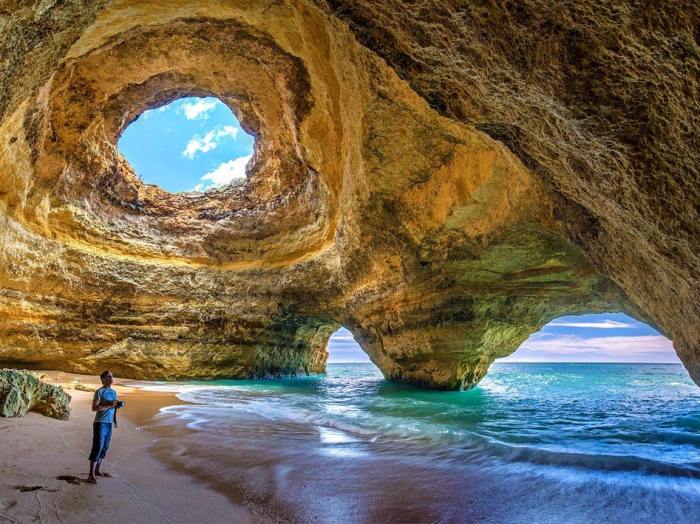
Portugal’s history is woven into the fabric of its cities and towns, offering a glimpse into centuries of rich cultural heritage and architectural marvels. From UNESCO World Heritage Sites to medieval cities, Portugal’s historical treasures are a testament to its vibrant past and enduring legacy.
Sintra: A Romantic Escape
Sintra, a UNESCO World Heritage Site, is a town brimming with historical significance and architectural beauty. Located just a short distance from Lisbon, Sintra has captivated visitors for centuries with its fairytale castles, lush gardens, and captivating landscapes.
“Sintra is a place of enchantment, where the past meets the present in a harmonious blend of nature and human creativity.”
The town’s most iconic landmark is the Pena Palace, a colorful and whimsical castle built in the 19th century. Its eclectic architecture, blending Moorish, Gothic, and Renaissance styles, reflects the romanticism of the era. The palace’s vibrant colors and intricate details create a magical atmosphere, transporting visitors to a world of fantasy.Sintra’s historical significance extends beyond its palaces.
The Quinta da Regaleira, a sprawling estate with hidden gardens, secret passages, and symbolic structures, is another testament to the town’s rich past. The estate’s enigmatic architecture and intricate symbolism have inspired countless legends and stories.
Évora: A City of Roman Ruins
Évora, a UNESCO World Heritage Site, is a medieval city that boasts a rich history dating back to Roman times. Its well-preserved Roman ruins, including the Temple of Diana and the Roman aqueduct, offer a glimpse into the city’s ancient past.
“Évora is a living museum, where the echoes of history resonate through its cobbled streets and ancient walls.”
Évora’s architectural marvels extend beyond Roman ruins. The city’s medieval cathedral, with its Gothic and Manueline features, is a testament to the architectural brilliance of the era. The Capela dos Ossos, a chapel adorned with the bones of thousands of monks, is a haunting reminder of the city’s long and complex history.
Portugal is totally on my bucket list! I’ve heard the beaches are insane and the food is even better. But, you know, if you’re looking for a different kind of adventure, you should check out Top 10 Places To Visit in Namibia.
It’s like a whole different world! I bet Namibia would be a totally epic road trip. Anyway, back to Portugal… I’m really hoping to see Sintra Castle and maybe even take a surfing lesson!
Guimarães: The Birthplace of a Nation
Guimarães, a UNESCO World Heritage Site, is a charming medieval city that holds the distinction of being the birthplace of Portugal’s first king, Afonso Henriques. Its historic center, with its cobbled streets, medieval walls, and historic buildings, is a testament to the city’s rich past.
“Guimarães is a city where the echoes of history whisper through its ancient streets, reminding us of the origins of a nation.”
The city’s most iconic landmark is the Guimarães Castle, a medieval fortress that played a crucial role in the formation of Portugal. The castle’s imposing walls and towers offer panoramic views of the city and its surrounding countryside.Guimarães is also home to the Palace of the Dukes of Braganza, a 15th-century palace that showcases the city’s architectural heritage.
The palace’s elegant gardens and ornate interiors provide a glimpse into the lives of the city’s former rulers.
Coimbra: A City of Learning and Tradition
Coimbra, a UNESCO World Heritage Site, is a city steeped in history and tradition, renowned for its ancient university, one of the oldest in Europe. Founded in 1290, the University of Coimbra has played a pivotal role in shaping Portugal’s cultural and intellectual landscape.
“Coimbra is a city where the spirit of learning and tradition intertwines, creating an atmosphere of intellectual curiosity and cultural vibrancy.”
The university’s historic buildings, with their distinctive yellow facades and elegant courtyards, are a testament to the city’s rich academic heritage. The Joanina Library, with its ornate wood carvings and gilded ceilings, is a treasure trove of knowledge and a testament to the city’s commitment to learning.Coimbra’s cultural heritage extends beyond its university.
The city’s historic center, with its charming streets and traditional architecture, offers a glimpse into the city’s rich past. The Santa Cruz Monastery, with its stunning cloisters and ornate chapels, is a testament to the city’s religious heritage.
Natural Landscapes
Portugal’s diverse landscape is a testament to its rich geological history and geographical location. From towering mountain ranges to serene beaches, the country offers a breathtaking array of natural wonders that will captivate any traveler.
Serra da Estrela Mountain Range
The Serra da Estrela, meaning “Star Mountain Range,” is Portugal’s highest mountain range, home to the country’s highest peak, Torre, standing at 1,993 meters (6,539 feet). This majestic range is a popular destination for outdoor enthusiasts, offering opportunities for hiking, skiing, and exploring the region’s unique flora and fauna.
The Serra da Estrela is characterized by its rugged terrain, with granite peaks, deep valleys, and lush forests. Its diverse ecosystems support a wide range of plant and animal life, including the endangered Iberian wolf, the agile Iberian ibex, and the elusive Pyrenean desman, a small semi-aquatic mammal found only in the Pyrenees and the Serra da Estrela.
Peneda-Gerês National Park
Located in the northern region of Portugal, the Peneda-Gerês National Park is a UNESCO Biosphere Reserve and a haven for nature lovers. The park boasts a diverse landscape, featuring towering granite peaks, cascading waterfalls, deep gorges, and emerald-green valleys.The Peneda-Gerês National Park is home to a rich variety of flora and fauna.
The park’s forests are home to a variety of trees, including oak, beech, and chestnut, while the meadows are dotted with wildflowers. The park is also home to a variety of animals, including wolves, wild boar, red deer, and the rare Iberian lynx.
Douro Valley
The Douro Valley, renowned for its production of port wine, is a UNESCO World Heritage Site and a breathtaking landscape. The valley is characterized by its steep, terraced vineyards that cascade down the hillsides, creating a picturesque panorama. The Douro Valley is a region of contrasts, with its rugged mountains meeting the serene waters of the Douro River.
The valley’s vineyards are home to a variety of grape varieties, including Touriga Nacional, Tinta Roriz, and Tinta Barroca, which are used to produce the world-famous port wine.
Ria Formosa Natural Park
The Ria Formosa Natural Park is a unique coastal lagoon system located in the Algarve region of southern Portugal. This protected area is characterized by its tranquil beaches, lagoons, salt marshes, and sand dunes. The Ria Formosa is a haven for biodiversity, providing a vital habitat for a wide variety of bird species, including flamingos, herons, and spoonbills.
The park is also home to a variety of fish, shellfish, and other marine life. The Ria Formosa is a popular destination for birdwatching, kayaking, and simply enjoying the tranquility of the natural environment.
Portugal’s got a ton of amazing places to see, from the historic castles of Sintra to the beaches of the Algarve. But if you’re looking for a little more European flair, you gotta check out France. Top 10 Places To Visit in France is a great resource for planning your trip.
Once you’ve gotten your French fix, though, be sure to come back to Portugal to explore the charming towns and breathtaking landscapes.
Cultural Experiences
Portugal offers a vibrant tapestry of cultural experiences that go beyond its stunning landscapes. From world-renowned museums to traditional crafts and lively festivals, there’s something for everyone to discover and appreciate.
Museums and Art Galleries
Portugal boasts a rich history and artistic heritage, reflected in its numerous museums and art galleries. These institutions house impressive collections that showcase the country’s artistic evolution and cultural identity.
- The National Museum of Ancient Art (Museu Nacional de Arte Antiga): Located in Lisbon, this museum houses a vast collection of Portuguese and European art from the Middle Ages to the 18th century. Notable pieces include paintings by Hieronymus Bosch, Nuno Gonçalves, and Grão Vasco, as well as sculptures, tapestries, and furniture.
- The Calouste Gulbenkian Museum (Museu Calouste Gulbenkian): This museum in Lisbon is home to a diverse collection of art and artifacts amassed by the Armenian philanthropist Calouste Gulbenkian. The collection spans various periods and cultures, including ancient Egyptian artifacts, Renaissance paintings, and French Impressionist works.
- The Serralves Museum of Contemporary Art (Museu de Arte Contemporânea de Serralves): Situated in Porto, this museum is dedicated to contemporary art and architecture. It features a permanent collection of works by renowned artists such as Andy Warhol, Louise Bourgeois, and Sol LeWitt, as well as temporary exhibitions showcasing emerging artists.
- The National Tile Museum (Museu Nacional do Azulejo): In Lisbon, this museum is dedicated to the history and evolution of azulejos, the decorative tiles that are an integral part of Portuguese architecture and culture. Visitors can admire a vast collection of azulejos from various periods and styles, illustrating their artistic and historical significance.
- The National Museum of Natural History (Museu Nacional de História Natural): Located in Lisbon, this museum houses a collection of specimens from the natural world, including fossils, minerals, and animal specimens. It provides insights into Portugal’s biodiversity and the history of life on Earth.
Traditional Portuguese Cuisine
Portuguese cuisine is a delightful blend of flavors and traditions, reflecting the country’s history and geography. From hearty seafood dishes to savory stews and sweet pastries, there’s a culinary adventure waiting around every corner.
| Restaurant | Location | Specialties |
|---|---|---|
| A Travessa | Lisbon | Traditional Portuguese dishes, including bacalhau (salted cod) and carne de porco à alentejana (pork with clams) |
| Casa Guedes | Lisbon | Famous for its sanduíches de carne de porco (pork sandwiches) and francesinha (a hearty sandwich with sausage, steak, and beer) |
| Cantinho do Avillez | Lisbon | Modern Portuguese cuisine with a focus on fresh, seasonal ingredients |
| Solar dos Presuntos | Lisbon | Known for its selection of cured meats and cheeses, as well as traditional Portuguese dishes |
| O Paparico | Porto | Offers a taste of authentic Portuguese cuisine, specializing in seafood and regional specialties |
Festivals and Events
Throughout the year, Portugal comes alive with a vibrant calendar of festivals and events that celebrate its culture, traditions, and history. These gatherings offer a unique opportunity to immerse oneself in the spirit of Portugal.
- Festas de Lisboa (Lisbon Festivals): Held in June, these festivals showcase the city’s cultural diversity with music, dance, theater, and art exhibitions.
- Festas de São João (Saint John’s Festivals): Celebrated on June 23rd, these festivals are known for their lively atmosphere, with street parties, bonfires, and traditional music.
- Festas do Mar (Sea Festivals): Held in various coastal towns throughout the year, these festivals celebrate Portugal’s maritime heritage with parades, boat races, and seafood feasts.
- Festival Internacional de Cinema (International Film Festival): Held in Lisbon in November, this festival showcases a selection of international films, documentaries, and short films.
- Festival de Música de Sintra (Sintra Music Festival): Held in Sintra in July and August, this festival features classical music concerts in the beautiful Pena Palace and other historical venues.
Cultural Experiences Unique to Portugal
Portugal has a unique cultural identity, shaped by its history, geography, and traditions. From the soulful melodies of fado music to the intricate craftsmanship of traditional crafts, these experiences offer a glimpse into the heart of Portugal.
- Fado Music: Fado is a soulful and melancholic musical genre that originated in Lisbon. It is characterized by its expressive vocals, accompanied by a Portuguese guitar and a viola. Fado performances can be enjoyed in traditional fado houses (casas de fado) throughout Portugal.
- Traditional Crafts: Portugal has a rich tradition of crafts, passed down through generations. Some of the most popular crafts include ceramics, embroidery, weaving, and woodcarving. Visitors can find these crafts in traditional markets and workshops throughout the country.
- Bullfighting: Bullfighting is a controversial tradition in Portugal, with strong opinions on both sides. It is a spectacle that combines skill, artistry, and tradition, with bullfights held in various arenas throughout the country.
Adventure Activities
Portugal offers a wealth of opportunities for adventure seekers, from exploring rugged mountains to gliding across turquoise waters. Whether you’re an adrenaline junkie or simply looking for a unique way to experience the country’s beauty, Portugal has something for you.
Hiking Trails, Top 25 Places To visit in Portugal
Portugal boasts a diverse landscape, making it a haven for hikers. The country’s extensive network of trails traverses mountains, valleys, forests, and coastlines, offering something for every skill level.
- The Rota Vicentina:This coastal trail in the southwest of Portugal is a popular choice for long-distance hikers. It stretches for over 230 kilometers, offering breathtaking views of the Atlantic Ocean and rugged cliffs.
- The Serra da Estrela National Park:Located in the heart of Portugal, the Serra da Estrela National Park is home to the highest peak in mainland Portugal, offering challenging hikes through stunning alpine landscapes.
- The Peneda-Gerês National Park:In the north of Portugal, the Peneda-Gerês National Park is known for its lush forests, cascading waterfalls, and dramatic granite peaks, offering a variety of hiking trails for all abilities.
Water Sports
Portugal’s long coastline and consistent waves make it a paradise for water sports enthusiasts. Whether you’re a seasoned surfer or a first-timer, there are plenty of opportunities to catch a wave.
- Surfing:Portugal’s west coast is renowned for its world-class surf breaks, attracting surfers from all over the globe. Popular surf spots include Nazaré, known for its giant waves, and Peniche, a haven for experienced surfers.
- Kayaking:Explore Portugal’s hidden coves and estuaries by kayak. The calm waters of the Algarve and the Douro River offer picturesque paddling experiences.
- Sailing:The Portuguese coast offers ideal conditions for sailing. From leisurely day trips to multi-day adventures, there are numerous options for sailing enthusiasts.
Cycling
Portugal’s scenic landscapes and well-maintained cycling routes make it a perfect destination for cycling enthusiasts. Whether you prefer leisurely rides through vineyards or challenging climbs through mountains, there are options for every level of cyclist.
- The EuroVelo 1:This long-distance cycling route runs along the Atlantic coast from Portugal to Norway, offering breathtaking views of the coastline.
- The Douro Valley:The Douro Valley, known for its vineyards and picturesque villages, is a popular destination for cycling enthusiasts. The region’s rolling hills and charming towns offer a scenic and challenging ride.
- The Algarve:The Algarve’s coastal roads offer stunning views of the Atlantic Ocean and sandy beaches, making it an ideal destination for a leisurely cycling trip.
Wine Tours
The Douro Valley, a UNESCO World Heritage Site, is renowned for its port wine production. Embark on a wine tour to explore the region’s vineyards, sample different vintages, and learn about the winemaking process.
- Vineyard Tours:Visit historic vineyards, learn about the grape varieties, and witness the traditional winemaking techniques.
- Wine Tastings:Sample a variety of port wines, from classic ruby ports to rare vintage ports.
- Douro River Cruises:Enjoy scenic cruises along the Douro River, passing through vineyards and picturesque villages.
Accommodation Options
Portugal offers a wide array of accommodation options to suit every taste and budget, from luxurious hotels to charming guesthouses and unique villas. Whether you’re looking for a romantic getaway, a family vacation, or an adventurous exploration, there’s a place for you to rest your head and immerse yourself in the Portuguese charm.
Hotels
Hotels in Portugal range from budget-friendly options to luxurious five-star resorts. They offer a variety of amenities, such as swimming pools, spas, restaurants, and bars. Popular hotel chains like Hilton, Marriott, and Radisson are present in major cities and tourist destinations.
- Budget-friendly hotels:These hotels are typically located in city centers or near public transportation. They offer basic amenities and are a great option for travelers on a tight budget. Examples include Pousada de Juventude (youth hostels) and local guesthouses.
- Mid-range hotels:These hotels offer a good balance of comfort and affordability. They often have amenities such as swimming pools, restaurants, and bars. Examples include Hotel da Estrela in Lisbon and Hotel do Chiado in Porto.
- Luxury hotels:These hotels offer the ultimate in comfort and service. They often have amenities such as spas, gourmet restaurants, and private balconies. Examples include The Ritz Lisbon and The Yeatman in Porto.
Guesthouses
Guesthouses are a great option for travelers who want a more intimate and personal experience. They are often family-run and offer a warm and welcoming atmosphere. Guesthouses typically offer breakfast and sometimes dinner, and they may also have shared common areas, such as a living room or kitchen.
- Rural guesthouses:These guesthouses are located in the countryside and offer a peaceful and relaxing escape from the hustle and bustle of city life. They often have stunning views of the surrounding countryside and may offer activities such as hiking, cycling, and horseback riding.
So, you’re thinking about Portugal, huh? That’s awesome, there’s so much to see! From the beaches of the Algarve to the historical sights of Lisbon, Portugal has something for everyone. If you’re looking for a bit of a change of pace, though, check out the Top 10 Places To Visit in Montenegro , which is known for its stunning mountains and crystal-clear waters.
But hey, don’t forget Portugal – it’s definitely worth adding to your travel bucket list!
- Urban guesthouses:These guesthouses are located in city centers and offer easy access to local attractions. They are a great option for travelers who want to experience the local culture and cuisine.
Villas
Villas are a luxurious option for families and groups of friends. They offer privacy and space, and they often have amenities such as swimming pools, gardens, and terraces. Villas can be found in a variety of locations, from coastal towns to rural villages.
- Coastal villas:These villas offer stunning views of the ocean and are perfect for families and groups who want to spend their days swimming, sunbathing, and exploring the coastline. Examples include villas in the Algarve and the Azores.
- Rural villas:These villas offer a peaceful and secluded escape from the city. They are often surrounded by vineyards, olive groves, or forests and offer activities such as hiking, cycling, and wine tasting.
Unique and Charming Accommodations
Portugal offers a variety of unique and charming accommodations that are sure to make your trip memorable.
- Castles:Many castles in Portugal have been converted into luxurious hotels, offering a truly unique and historical experience. These castles often have stunning views of the surrounding countryside and may offer amenities such as swimming pools, spas, and gourmet restaurants.
Examples include the Pousada de Palmela in Palmela and the Pousada de Monsaraz in Monsaraz.
- Monasteries:Some monasteries in Portugal have been transformed into hotels, offering a peaceful and spiritual retreat. These monasteries often have beautiful gardens and courtyards and may offer amenities such as meditation rooms and yoga classes. Examples include the Convento do Espinheiro in Évora and the Mosteiro de Alcobaça in Alcobaça.
- Farmhouses:Farmhouses offer a rustic and authentic experience. They are often located in the countryside and offer stunning views of the surrounding landscape. Farmhouses may offer activities such as cooking classes, wine tastings, and farm tours.
- Treehouses:For a truly unique and adventurous experience, consider staying in a treehouse. Treehouses are located in forests and offer a peaceful and secluded escape from the world. They often have stunning views of the surrounding forest and may offer amenities such as outdoor showers and private decks.
Best Areas to Stay
The best area to stay in Portugal depends on your travel preferences and budget.
- Lisbon:The capital city of Portugal is a vibrant and exciting destination with a rich history and culture. Lisbon offers a wide range of accommodation options, from budget-friendly hostels to luxurious hotels. The city is also home to many historic neighborhoods, such as Alfama and Bairro Alto, which offer a glimpse into the city’s past.
- Porto:The second-largest city in Portugal, Porto is known for its beautiful architecture, its delicious port wine, and its vibrant nightlife. Porto offers a wide range of accommodation options, from budget-friendly guesthouses to luxurious hotels. The city is also home to many historic neighborhoods, such as Ribeira and Vila Nova de Gaia, which offer a glimpse into the city’s past.
- Algarve:The Algarve is a popular tourist destination known for its beautiful beaches, its stunning coastline, and its warm weather. The Algarve offers a wide range of accommodation options, from budget-friendly apartments to luxurious villas. The region is also home to many charming towns and villages, such as Lagos, Albufeira, and Tavira, which offer a glimpse into the region’s history and culture.
- Madeira:Madeira is an autonomous region of Portugal located in the North Atlantic Ocean. The island is known for its stunning natural beauty, its lush forests, and its volcanic landscape. Madeira offers a wide range of accommodation options, from budget-friendly guesthouses to luxurious hotels.
The island is also home to many charming towns and villages, such as Funchal, Santana, and Porto Santo, which offer a glimpse into the island’s history and culture.
- Azores:The Azores are a group of nine volcanic islands located in the North Atlantic Ocean. The islands are known for their stunning natural beauty, their lush forests, and their volcanic landscape. The Azores offer a wide range of accommodation options, from budget-friendly guesthouses to luxurious hotels.
The islands are also home to many charming towns and villages, such as Ponta Delgada, Angra do Heroísmo, and Horta, which offer a glimpse into the islands’ history and culture.
Getting Around
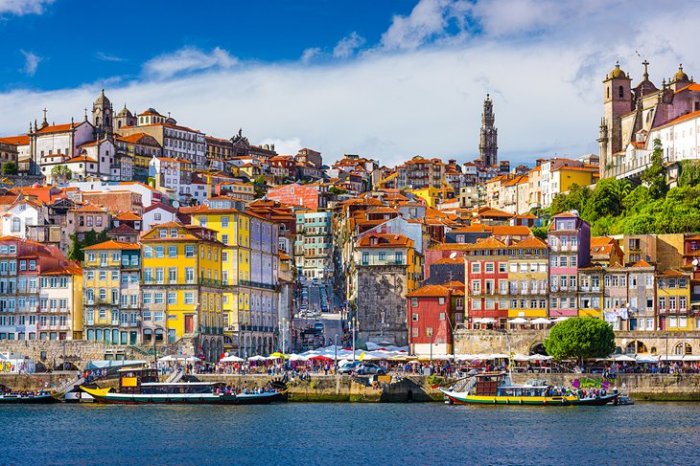
Portugal offers a variety of transportation options for travelers, making it easy to explore the country’s diverse regions. From efficient public transportation networks to scenic road trips and convenient flights, there’s a way to get around that suits every traveler’s preferences and budget.
Public Transportation
Public transportation is a reliable and affordable way to travel within Portugal. The country boasts a well-developed network of buses, trains, and trams, connecting major cities and towns. The Portuguese National Railway (CP)operates a comprehensive rail network that reaches most parts of the country.
High-speed trains (Alfa Pendular) connect major cities like Lisbon, Porto, and Braga, offering fast and comfortable journeys. Regional and suburban trains provide connections to smaller towns and villages. Buses are another convenient option, particularly for reaching destinations not served by trains.
Rede Expressosis a major bus company that offers extensive routes throughout Portugal, including international connections. Lisbon’s public transportation system (Carris)is highly efficient and includes buses, trams, and the metro. Porto’s public transportation system (STCP)also provides an extensive network of buses, trams, and the metro. Travelers can purchase tickets for individual journeys or opt for travel passesthat offer unlimited travel for a specific duration.
Car Rentals
Renting a car allows for greater flexibility and freedom to explore Portugal at your own pace. Driving in Portugal is generally safe, with well-maintained roads. However, it’s important to be aware of some factors:
- Portugal drives on the right side of the road, which can be different from some other countries.
- Speed limits are enforced and can vary depending on the road type. Be sure to follow the posted signs.
- Toll roads are common in Portugal. You can pay tolls electronically using a Via Verdetag or with cash at toll booths.
- Parking can be challenging in cities, especially in popular tourist areas. Consider using parking garages or designated parking zones.
Flights
For longer distances within Portugal, flying is a convenient option. TAP Portugalis the national airline and offers domestic flights connecting major cities like Lisbon, Porto, Faro, and Madeira. Other airlines also operate domestic flights, such as Ryanairand easyJet.
Travel Passes and Discounts
Several travel passes and discounts are available for tourists, offering cost savings on transportation and attractions. The Portugal Passprovides unlimited travel on the Portuguese National Railway (CP) for a set duration. The Lisboa Cardoffers free travel on Lisbon’s public transportation, discounts on attractions, and other benefits.
The Porto Cardprovides similar benefits for travelers exploring Porto and its surrounding areas. For exploring the Algarve region, the Algarve Cardoffers discounts on attractions, transportation, and activities.
Local Culture and Etiquette
Portugal is known for its warm and welcoming people, but like any culture, there are certain customs and etiquette that are important to understand. By respecting these traditions, you can ensure a more enjoyable and meaningful experience during your travels.
Learning Basic Portuguese Phrases
Learning a few basic Portuguese phrases can go a long way in enhancing your communication and interactions with locals. Even simple greetings like “Olá” (hello) and “Obrigado” (thank you) can make a big difference in showing respect and appreciation.
“Learning a few basic phrases is a great way to show respect for the local culture and can make your trip more enjoyable.”
- Greetings:“Olá” (hello), “Bom dia” (good morning), “Boa tarde” (good afternoon), “Boa noite” (good evening)
- Thank you:“Obrigado” (thank you – masculine), “Obrigada” (thank you – feminine)
- Please:“Por favor”
- Excuse me:“Com licença”
- Yes/No:“Sim”/”Não”
Respecting Local Customs and Traditions
While Portugal is generally a relaxed and welcoming country, there are certain customs and traditions that are important to respect.
- Mealtimes:Lunch is typically eaten between 1 pm and 3 pm, and dinner is usually served between 8 pm and 10 pm.
- Tipping:Tipping is not as common in Portugal as in other countries. A small tip is usually appreciated for good service, but it is not mandatory.
- Dress Code:While Portugal is generally a casual country, it is important to dress appropriately for certain occasions, such as visiting churches or formal restaurants.
- Noise Levels:Portugal is a generally quiet country, especially during mealtimes and in the evenings. It is important to be mindful of noise levels, especially in residential areas.
Travel Tips and Planning
Planning a trip to Portugal is an exciting adventure! With its stunning beaches, historic cities, and delicious cuisine, Portugal offers something for everyone. To ensure a smooth and enjoyable journey, it’s important to consider some essential travel tips.
Visa Requirements
To determine your visa requirements, check with your local Portuguese embassy or consulate. If you’re a citizen of a European Union (EU) country, you won’t need a visa to enter Portugal. However, if you’re from a non-EU country, you may need a visa depending on your nationality and the duration of your stay.
Currency Exchange
The official currency of Portugal is the euro (€). You can exchange currency at banks, airports, and exchange bureaus. It’s often more advantageous to exchange currency at your home bank before your trip to avoid airport fees. Credit cards are widely accepted in Portugal, but it’s a good idea to have some cash on hand for smaller purchases or in areas with limited card acceptance.
Best Time to Visit
Portugal experiences a Mediterranean climate with mild winters and warm, sunny summers. The best time to visit Portugal depends on your preferences.
- Spring (March-May):Enjoy pleasant weather, blooming flowers, and fewer crowds. It’s a great time for outdoor activities and exploring the countryside.
- Summer (June-August):Experience warm weather, sunny days, and vibrant nightlife. This is the peak season for tourism, so expect higher prices and larger crowds.
- Autumn (September-November):Enjoy mild temperatures, fewer crowds, and colorful autumn foliage. This is a good time for hiking and wine tasting.
- Winter (December-February):Experience mild weather and fewer crowds. This is a great time to visit Portugal for its festive atmosphere and Christmas markets.
Packing Tips
Packing for Portugal depends on the time of year you’re visiting.
- Clothing:Pack comfortable and lightweight clothing. In summer, pack shorts, t-shirts, dresses, and swimwear. In winter, pack layers, including sweaters, jackets, and trousers. Remember to bring comfortable walking shoes, as you’ll be doing a lot of exploring.
- Essentials:Pack sunscreen, sunglasses, a hat, and insect repellent. Also, consider bringing a small first-aid kit, a travel adapter (Portugal uses the two-pin plug type), and a travel guidebook.
Conclusion: Top 25 Places To Visit In Portugal
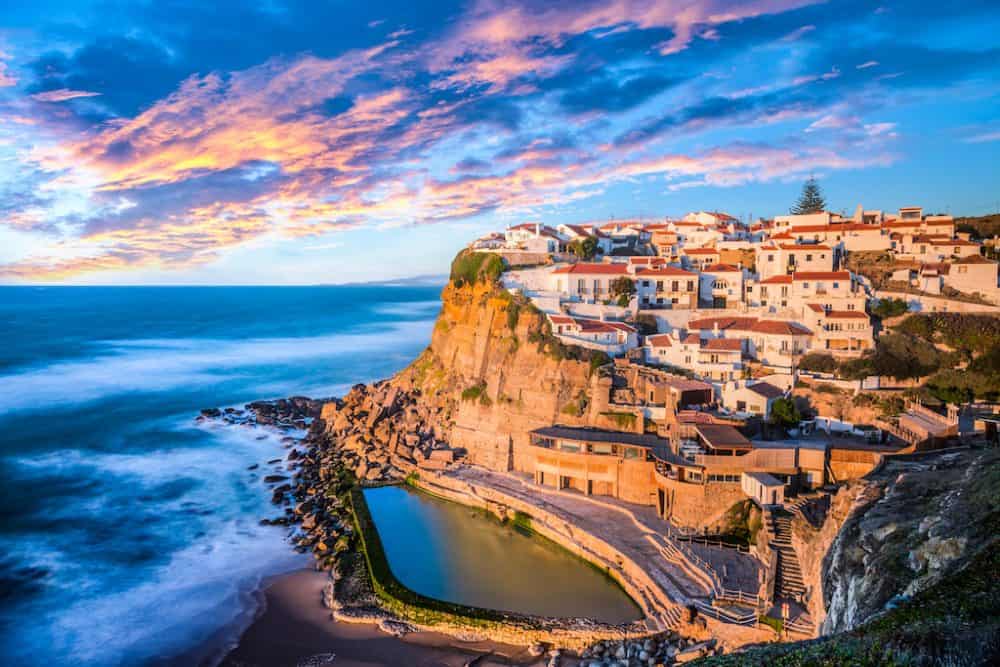
From the bustling streets of Lisbon to the serene beaches of the Algarve, Portugal offers a diverse and captivating experience for every traveler. Whether you’re seeking historical wonders, natural beauty, cultural immersion, or adventurous pursuits, this enchanting country has something to offer.
Key Highlights of the Top 25 Places to Visit in Portugal
The top 25 places to visit in Portugal showcase the country’s rich tapestry of history, culture, and natural beauty. Here are some key highlights:
- Historic Cities:Lisbon, Porto, Coimbra, Évora, and Guimarães offer a glimpse into Portugal’s fascinating past, with stunning architecture, museums, and cultural landmarks.
- Coastal Delights:The Algarve, with its golden beaches, dramatic cliffs, and charming coastal towns, provides a perfect escape for sun-seekers and nature lovers.
- Natural Wonders:The Serra da Estrela, Peneda-Gerês National Park, and the Douro Valley offer breathtaking landscapes, hiking trails, and opportunities to connect with nature.
- Cultural Experiences:Explore the vibrant arts scene in Lisbon, sample traditional Portuguese cuisine, and witness the country’s lively festivals.
- Adventure Activities:From surfing and sailing to hiking and mountain biking, Portugal offers a range of outdoor activities for thrill-seekers.
Creating Your Own Unique Travel Experience
Portugal’s diverse offerings allow you to create a travel experience tailored to your interests. Whether you’re a history buff, a beach lover, an adventurer, or a foodie, you can find your perfect itinerary.
- Plan your trip based on your interests:Are you drawn to historical sites, natural wonders, or vibrant cities? Focus your itinerary around your passions.
- Explore off-the-beaten-path destinations:Portugal has hidden gems waiting to be discovered. Venture beyond the popular tourist spots and uncover the country’s true charm.
- Embrace the local culture:Engage with the locals, sample traditional cuisine, and immerse yourself in the Portuguese way of life.
- Consider the best time to visit:Portugal enjoys pleasant weather year-round, but different seasons offer unique experiences. Research the best time to visit based on your preferences.
Last Point
Portugal’s a place that truly has something for everyone. Whether you’re a history buff, a nature lover, a foodie, or just looking for a relaxing beach vacation, you’re sure to find your perfect escape here. So ditch the ordinary and embrace the extraordinary – start planning your Portuguese adventure today!
FAQ Explained
Is Portugal safe for tourists?
Portugal is generally considered a very safe country for tourists. Just like any place, it’s always a good idea to be aware of your surroundings and take common-sense precautions.
What is the best time of year to visit Portugal?
The best time to visit Portugal depends on what you’re looking for. Spring and fall offer pleasant weather and fewer crowds, while summer is perfect for beach lovers. Winter can be a great time to experience the country’s festive atmosphere.
How much does it cost to travel to Portugal?
The cost of travel to Portugal can vary depending on your travel style and budget. You can find budget-friendly options or splurge on luxury experiences. It’s best to do your research and plan your trip accordingly.
Do I need a visa to visit Portugal?
Visa requirements vary depending on your nationality. It’s essential to check the visa requirements for Portugal based on your citizenship before you travel.
